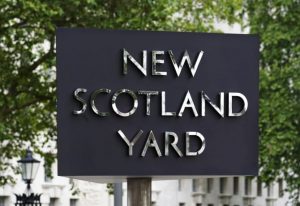The facts have changed, says Rishi Sunak, as he scraps HS2 leg
“The facts have changed,” the PM has said, as he confirmed he was scrapping the huge infrastructure project of the West Midlands to Manchester leg of HS2 high speed rail.
Addressing his party conference, Rishi Sunak said the project had come from a “false consensus” that links between big cities were “all that matters”.
He announced he would instead invest in transport projects across the country.
And he announced a new post-16 qualification and phasing out smoking.
It was the PM’s first speech to party conference as Conservative leader, and his hour-long address marked the start of a new and more risky approach from Mr Sunak.
He said the public were exhausted with the politics of the last 30 years and that he was the man to deliver change.
Conceding that the public thinks it’s time for a change carries significant opportunities – and significant risks. If Mr Sunak can convince voters that he offers a better chance of a new approach to government than Sir Keir Starmer, he may yet arrest the persistent and wide polling gap between the Tories and Labour.
Talk about the scrapping of HS2 overshadowed the conference, and the PM’s confirmation was accompanied by news that nearly £4bn would be reallocated to transport schemes in six northern city regions.
There will be £3bn for upgraded and electrified lines between Manchester and Sheffield, Sheffield and Leeds, Sheffield and Hull, and Hull to Leeds.
He also said money would go towards resurfacing roads across the country.
The prime minister confirmed that the HS2 line from the West Midlands would run all the way to Euston station, not Old Oak Common in West London as had been rumoured.
The remaining eastern section between Birmingham and the East Midlands has also been ditched.
Mr Sunak’s speech also included the pledge that the age at which people can buy cigarettes and tobacco in England should rise by one year every year so that eventually no-one can buy them.
MPs were to be given a free vote in parliament on the issue, Mr Sunak said.
And he said that A-levels and T-levels will be folded into a new qualification for all school leavers, called the Advanced British Standard.
It will mean 16 to 19-year-olds will study five subjects instead of three, and some English and Maths to 18.









